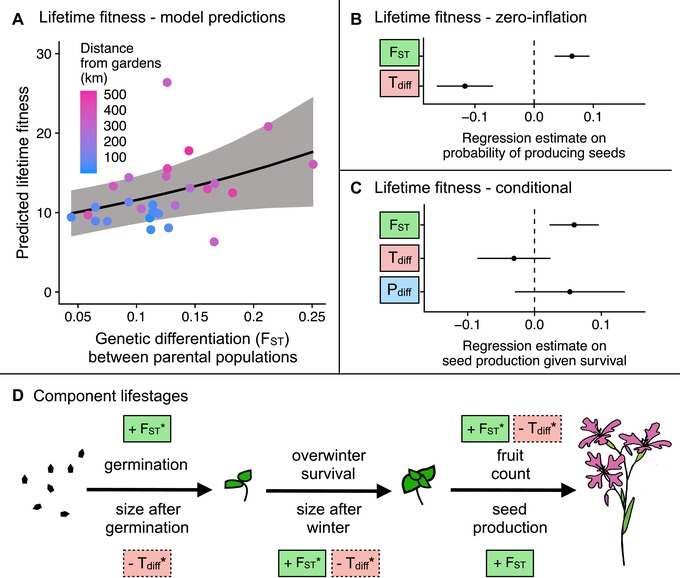Figure 5.

Effects of genetic differentiation between parental populations, as well as midparent temperature and precipitation on performance of Clarkia pulchella. (A) Among between‐population crosses, increased genetic divergence between parental populations had a positive effect on lifetime fitness (number of seeds produced by each seed that was planted). The regression line and 95% confidence interval show the effects of FST when Tdiff and Pdiff are held constant. These incorporate both the conditional and zero‐inflation model components; the confidence interval is conditioned on fixed effects only. Points are raw averages for each gene flow source in each garden, colored by the distance between the source population and the garden (the home of the recipient population). (B) Regression estimates and standard errors of genetic differentiation (FST) and absolute midparent temperature differences (Tdiff) on the probability of producing seeds. (C) Effects of genetic differentiation, temperature differences, and absolute precipitation differences (Pdiff) on conditional seed production. (D) Effects of Tdiff and FST on component lifestages of Clarkia pulchella. Precipitation differences were not significant when tested for component lifestages. Directionality of effects is illustrated with “+” and “‐”. Not quite significant parameters (0.05 < P < 0.10) are shown in boxes with dashed margins, predictors in solid boxes are significant (P < 0.05). Size in the previous lifestage is not shown here, but has a significant positive effect on overwinter and reproductive lifestages. * indicates predictors that are only significant in separate models, not in full models with all predictors. Complete statistical results of these tests are in Table S5 and Table S6.
